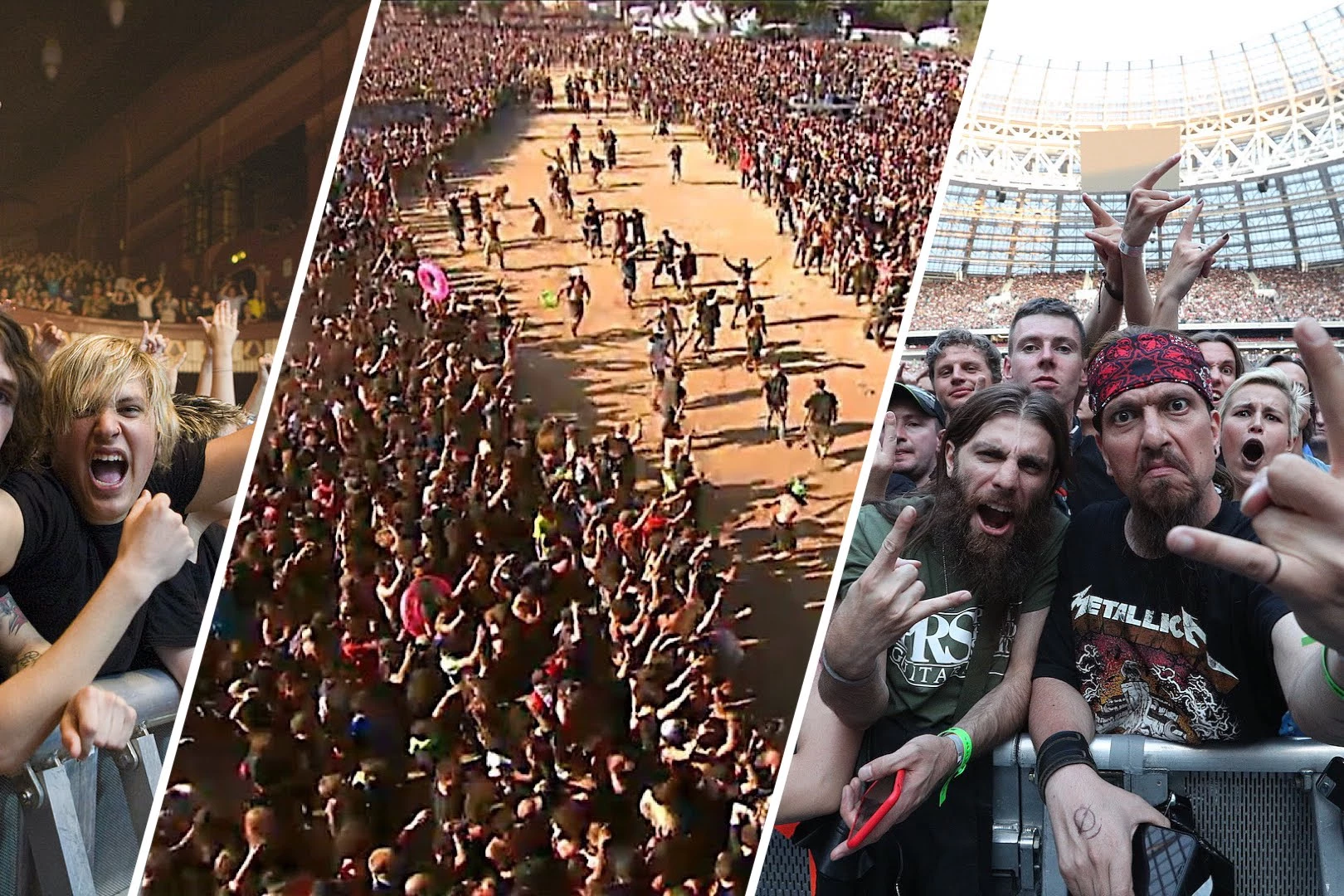


It is unclear how well those lessons were implemented at Astroworld.
#MOSH PIT DEATHS FULL#
Other practices have emerged, like the use of counterprogramming on multiple stages, with overlapping set times, to prevent the full force of a festival audience from piling into one place at the same time. To manage general-admission events, long barriers known as crowd breaks are usually deployed to divide large spaces into smaller zones that contain as few as 5,000 patrons, reducing the risk of overcrowding, Phillips said.

The day before the Astroworld disaster, in a conference call with analysts to announce Live Nation’s third-quarter financial results, Michael Rapino, its CEO, said that when the company controls all revenue streams for a festival, “it’s our highest-margin business.”Ĭrowd-control plans are an essential part of those events, and have evolved over the past two decades or so as festivals have become a key part of the touring industry. In a statement, Live Nation said, “We continue to support and assist local authorities in their ongoing investigation so that both the fans who attended and their families can get the answers they want and deserve.” The company declined to comment further.įor Live Nation and other promoters, festivals have become an important moneymaker. But few doubt there will be repercussions that will affect insurance, security, government regulations and contractual agreements among promoters, performers, venues and various third parties like security firms. Until the criminal investigation is completed, and courts sort out liability in the civil suits, it may be unclear just what steps festival promoters and concert venues should take to prevent a recurrence. Randy Phillips, former CEO of AEG Live, a concert giant that counts Coachella among its portfolio of festivals, said that for shows he is planning on his own as a promoter, “we are oversecuring and overinsuring all participants in a way we probably wouldn’t have pre-Astroworld.” Still, the impact of the deaths in Houston are already being felt in the industry, as executives calculate the increased costs and heightened security measures they expect will be required in the future to avoid becoming the next Astroworld. Deaths and major injuries are rare, and when they do occur, they often involve factors such as drug overdoses.

Live Nation, the world’s largest concert company, put on some 40,000 shows of various sizes in 2019, the most recent year that it had a full slate of events. The concert industry sees it differently, arguing that the rarity of serious problems given the many thousands of events that go on without major incident each year proves that most shows are perfectly safe and that expertise has been developed to protect the public. To critics like Wertheimer, Astroworld is yet another sign that concert promoters prioritize profits over safety. The Astroworld disaster has already ignited debate about the safety of festivals, just as the industry has finally seen the return of large-scale touring after more than a year of dormancy during the pandemic. “I’ve been living this recurring nightmare, what happened in Houston, for 40 years,” he said in an interview. He began his career investigating the Who disaster and has since documented thousands of safety incidents at festivals and concerts his research has included hours studying the dynamics of mosh pits. The event, and the finger-pointing in response, seemed all too familiar to Paul Wertheimer, a concert security expert and longtime critic of the industry. Those fears were rekindled with Travis Scott’s Astroworld festival in Houston last Friday, when nine people died and more than 300 were injured at a packed event that drew 50,000 people to NRG Park.įor now, more questions than answers surround Astroworld, including how well the festival’s security plan was followed and why it took nearly 40 minutes to shut the show down after Houston officials declared a “mass casualty event.” Houston police are conducting a criminal investigation, and dozens of lawsuits have been filed against Scott and Live Nation, the festival’s promoter, among other defendants.
#MOSH PIT DEATHS SERIES#
But through the years, a series of disasters at concerts, clubs and festivals have served as reminders of the dangers of crowds, such as the death of nine people at a Danish festival in 2000 or a stampede at a nightclub in Chicago in 2003 that left 21 dead.


 0 kommentar(er)
0 kommentar(er)
